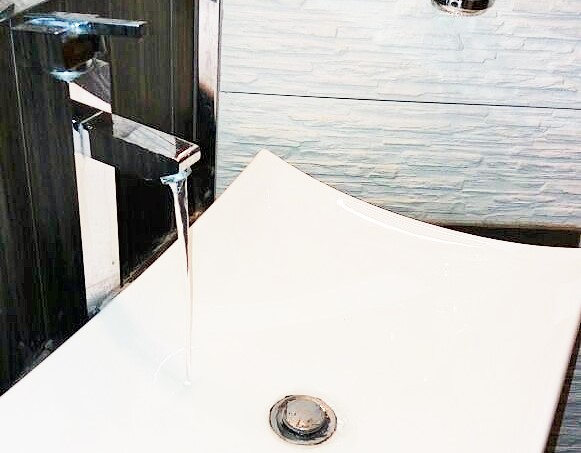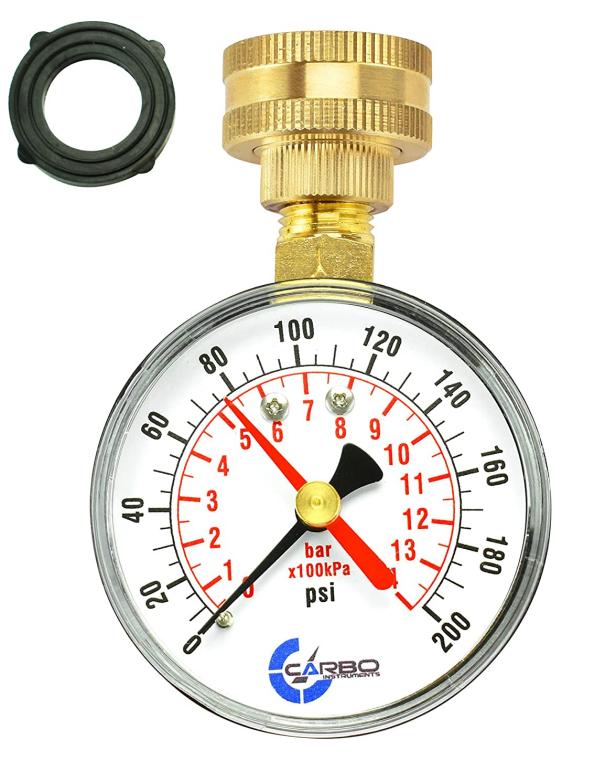Our Comprehensive Manual to Fixing Low Water Pressure in Your Home
Our Comprehensive Manual to Fixing Low Water Pressure in Your Home
Blog Article
Any individual seems to have their own individual assumption about 9 Reasons for Low Water Pressure in Your House.

Low tide stress in your house can be a frustrating problem, affecting everything from showering to washing recipes. If you're experiencing weak water flow, there are numerous possible causes and services to explore. In this guide, we'll review typical reasons for low tide stress and useful actions to deal with the problem effectively.
Introduction to Low Water Pressure
Low water pressure happens when the circulation of water from your faucets, showers, and other fixtures is weaker than usual. This can make daily jobs extra challenging and much less reliable. Comprehending the root causes of low water pressure is essential to finding the ideal remedy.
Common Causes of Low Tide Pressure
Faulty Pressure Regulatory Authorities
Pressure regulatory authorities are accountable for preserving constant water stress in your home. If they malfunction, it can result in low tide pressure or uneven circulation throughout your home.
Metropolitan Water System Issues
Occasionally, the issue lies outside your home. Municipal water problems, such as main line leakages or upkeep job, can temporarily lower water stress in your area.
Pipeline Obstructions
Over time, pipes can end up being blocked with natural resource, debris, or debris, restricting the flow of water. This is a typical concern in older homes with galvanized steel pipelines.
Corrosion
Corrosion within pipelines can bring about leakages and decreased water stress. Rust buildup can constrict water flow, particularly in aging plumbing systems.
Just How to Diagnose Low Water Stress
Evaluating Pipes
Inspect visible pipelines for indications of leaks, deterioration, or blockages. Take notice of any kind of unusual audios, such as knocking or rattling pipes, which might show issues within the plumbing system.
Consulting with a Plumber
If you're not able to determine the reason for low water pressure, think about working with a professional plumber to carry out a detailed evaluation. They can identify underlying issues and recommend appropriate remedies.
Examining Faucets and Fixtures
Beginning by checking the water pressure at various taps and fixtures throughout your home. If the concern is separated to details areas, it may show localized problems.
Do It Yourself Solutions to Fix Low Water Stress
Flushing Water Heater
Debris accumulation in the hot water heater can restrict circulation and decrease performance. Purging the storage tank periodically aids get rid of debris and preserve ideal performance.
Examining Stress Regulatory Authority
Guarantee that the pressure regulatory authority is functioning properly. Changing or replacing the regulator can aid recover correct water stress throughout your home.
Cleansing Aerators and Showerheads
Natural resources can gather in aerators and showerheads, minimizing water flow. Get rid of and clean up these components consistently to enhance water stress.
Clearing Clogs in Piping
For minor blockages, attempt using a plumbing serpent or chemical drainpipe cleaner to clear obstructions in pipes. Be cautious when utilizing chemicals and adhere to safety guidelines.
When to Call a Specialist Plumber
If DIY efforts fall short to resolve the concern or if you suspect considerable plumbing issues, it's ideal to seek support from a qualified plumber. They have the know-how and devices to attend to complex issues securely and properly.
Preventive Measures to Preserve Water Stress
Setting Up a Pressure Booster
Consider setting up a stress booster pump to boost water stress in locations with continually low circulation. This can be especially useful for multi-story homes or homes with high-demand fixtures.
Tracking Water Usage
Bear in mind water usage practices and avoid overtaxing the plumbing system. Straightforward changes, such as astonishing showers and washing loads, can aid preserve sufficient water stress.
Normal Maintenance
Schedule routine upkeep for your plumbing system to avoid problems such as corrosion, leaks, and blockages. Dealing with small issues early can help stay clear of even more significant fixings in the future.
Conclusion
Taking care of low water stress can be frustrating, but determining the underlying causes and implementing ideal options can bring back optimum flow throughout your home. Whether it's cleaning aerators, checking pipelines, or seeking advice from a plumber, taking positive steps can ensure a constant supply of water for your daily demands.
FOUR WAYS TO FIX LOW WATER PRESSURE NOW
Turning on a shower or faucet only to find the water comes out in a sad, slow drizzle is never a good feeling. How exactly are you supposed to wash a pan or take a quick shower when it takes 10 minutes just to rinse off a little soap? The good news is that when your water pressure is bad, there's always a cause: typically one that can be easily fixed. Here are some of the most common causes of low pressure and what you can do to fix the issue:
DEBRIS AND MINERAL DEPOSIT BUILDUPS
If you notice low water pressure from just one or two of the fixtures in your house, the problem likely has to do with debris buildup. Water is full of minerals and other debris, all of which can accumulate in your pipes and on your fixtures. This can cause a blockage that affects how much water flows through. To fix this, try filling a small plastic bag with white vinegar, and use a rubber band to hang it around your showerhead or faucet. Let the head of the fixture soak for a few hours, and the vinegar should loosen the deposits.
WATER LEAKS
Leaks are another common cause of low water pressure. If water is flowing out of your plumbing through a hole or crack before it can reach your fixture, the pressure coming out of the faucet or showerhead will be lower. A plumbing professional is your best bet for finding and repairing a leak in your water supply pipes.
Leaks are another common cause of low water pressure. If water is flowing out of your plumbing through a hole or crack before it can reach your fixture, the pressure coming out of the faucet or showerhead will be lower. A plumbing professional is your best bet for finding and repairing a leak in your water supply pipes.
A VALVE ISSUE
If you have low water pressure throughout your home, check your main shut-off valve to make sure it's completely open. You may also want to see if there's a pressure-reducing valve installed. If there is, have a plumber help you adjust the settings to get the pressure you're looking for.
OTHERS USING WATER
Believe it or not, your low water pressure could be caused by your neighbors. If you notice low pressure at certain times of day, it may be because you and the people living next to you have similar schedules - when everyone is showering at the same time, the pressure will be lower in every home. Low pressure throughout the neighborhood may also be caused by an issue with your municipal water supply. If that's the case, call the supplier to see if they're working on the issue.
https://www.rotorooter.com/blog/water-leaking/low-water-pressure-fixes/

We were guided to that article about from a friend on a different domain. Make sure you pause to distribute this page if you liked it. Thanks for being here. Please pay a visit to our site back soon.
Book An Appointment Report this page